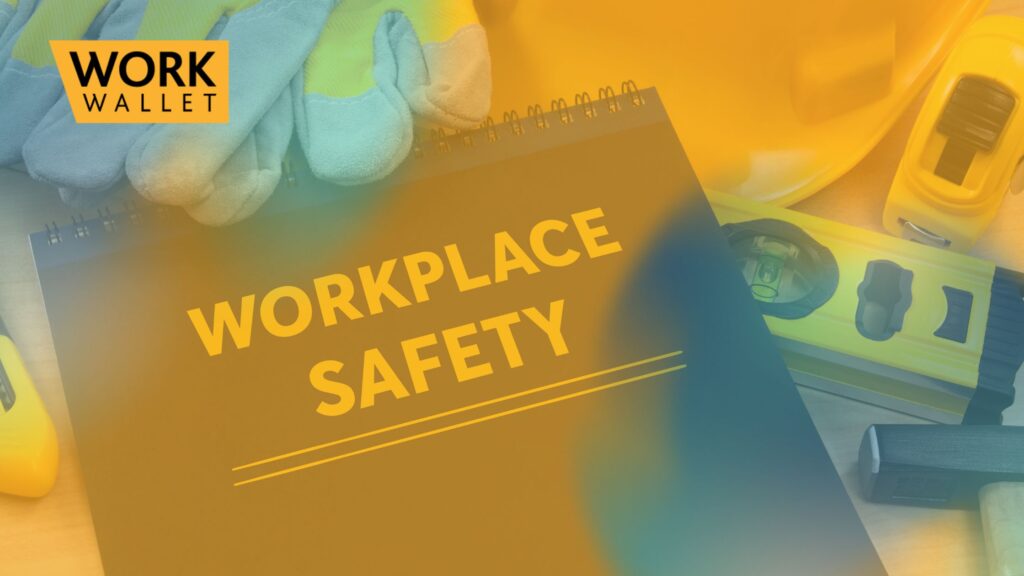EHS Compliance: What Is It and Does Your Business Need It?
21 January 2025

At Work Wallet, we understand that EHS compliance - adhering to environmental, health, and safety regulations - is essential for fostering a secure, productive, and environmentally responsible workplace. These regulations establish the rules, policies, and protocols necessary for maintaining the highest safety standards.
Why EHS Compliance Matters
EHS compliance isn't just about ticking boxes. It's a vital part of ensuring that businesses protect their people, enhance morale, and operate sustainably. Failing to comply can lead to severe repercussions, including:
- Financial penalties
- Workplace injuries, illnesses, or fatalities
- Damage to reputation and loss of customer trust
- Potential lawsuits or imprisonment
- Environmental harm
Adhering to EHS standards demonstrates organisations' commitment to safeguarding employees, the public, and the environment. These efforts are not only legally mandated but also morally imperative.
The Role of Regulatory Bodies
Regional EHS regulatory bodies, such as OSHA (U.S.), HSE (UK), and Safe Work Australia, govern organizations worldwide. These entities ensure that businesses comply with safety standards regardless of location.
Employer Responsibilities in EHS Compliance
Employers have a legal and ethical duty to maintain a safe workplace. Key responsibilities include:
- Regular Audits and Inspections
Businesses must routinely assess and address workplace risks. This proactive approach prevents incidents and ensures ongoing compliance. - Appointing EHS Professionals
High-risk industries often benefit from dedicated EHS managers who oversee compliance, implement safety practices, and ensure continuous improvement. - Providing Training
Regular training equips employees with the knowledge to identify hazards and follow safety protocols. This includes specific guidelines on topics like hazard communication and equipment use. - Supplying PPE
Employers must provide appropriate personal protective equipment (PPE) and ensure staff are trained to use it effectively.
Simplifying Compliance with Work Wallet
Managing EHS compliance can be challenging, especially when regulations frequently evolve. Work Wallet simplifies this process by offering an integrated software solution that helps organisations stay ahead of compliance requirements.
Our platform provides:
- Tools for scheduling and monitoring safety activities
- Intuitive dashboards for tracking audits, inspections, and training
- Instant reporting to regulatory bodies such as OSHA and HSE
- Enhanced communication tools to engage employees in safety efforts
EHS Compliance Checklist
Here’s a quick checklist to help businesses stay on track:
- Hazard Communication: Develop and implement a hazard communication plan to address risks like slips and trips.
- Emergency Preparedness: Establish a comprehensive emergency plan for various scenarios, from fires to workplace violence.
- PPE Management: Ensure employees have access to and training on using proper PPE.
- Chemical Safety: Educate workers on the hazards and handling of workplace chemicals.
Why Choose Work Wallet?
Work Wallet streamlines EHS compliance by automating processes and centralising safety management. Our solution empowers businesses to not only meet but exceed regulatory requirements, ensuring safer workplaces and boosting employee confidence.
With Work Wallet, EHS compliance becomes more than a requirement; it’s a seamless part of your organisation’s commitment to excellence. Get started and book a demo with our Work Wallet team today!
Share post
More Posts
How to Create a Safer Workplace with Permit to Work Systems
Jan 2025
At Work Wallet, we are committed to creating safer workplaces by offering innovative solutions that simplify health and safety management....
A Guide to EHS Compliance: Insights from Work Wallet
Jan 2025
At Work Wallet, we are dedicated to empowering businesses to streamline their EHS (Environment, Health, and Safety) compliance processes. This...



